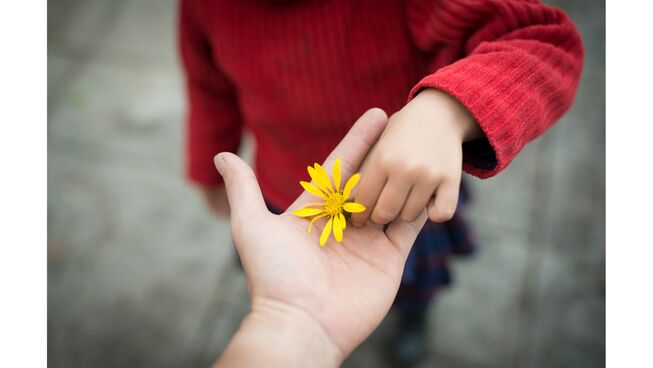I had gratitude all wrong

Lots of research out there shows that gratitude is good for us. For example, according to the Black Dog Institute, being thankful can enhance our energy, mental health and overall wellbeing.
Precisely because gratitude is so good for us, I wanted to think more deeply about it. As I did, I realised I had been labouring under some unhelpful misconceptions.
Misconception #1: You have to feel grateful to be grateful
I always thought that if I didn’t feel gratitude then it couldn’t be gratitude.
A few years ago, my mum lay dying in a hospital bed for 6 long, excruciating weeks. Mentally I knew there were things I could be grateful for. For example: she had some lucid moments, and we kids all got to say our goodbyes. But at the time I didn’t feel grateful for those things. I just felt an overwhelming sense of grief. Because I didn’t feel gratitude I mistakenly concluded that I wasn’t grateful.
According to Smiling Mind, gratitude is the act of recognising something external to you that has enhanced your life (whether in a big or small way), and expressing thankfulness for it.
That’s helpful. It shows that gratitude doesn’t have to be accompanied by particular feelings. We express gratitude when we can acknowledge something good in our lives. So I was practicing gratitude by my mother’s hospital bed, even when I didn’t feel grateful.
Misconception #2: Gratitude solves the problem
I always thought gratitude would somehow simply and magically transform other feelings - because I knew gratitude enhances our mental health, I assumed this was the how.
I remember a season of life where it felt like all my friends were getting married, and I wasn’t. Friends would tell me to count my blessings being unattached. I started to feel like I couldn’t complain and just had to be positive.
According to Psychology Today, “gratitude becomes unhealthy when it is weaponized to diminish or dismiss your own lived experiences of various stressors and harms”.
I think I was experiencing a bit of toxic positivity back then - when friends were too quick to tell me to count my blessings, as if this was some sort of quick fix. Gratitude might help give us a more positive mindset, but we still need to work through the issues.
Don’t get me wrong, I do think there is a place for gratitude as we work through issues - which I write about in my book. It's more a case of when we bring gratitude into the equation. In the future, when friends share difficult things, I want to be careful not to bring out the gratitude card too early. “On the bright side” might help but it won’t magically make things better.
Misconception #3: Comparisons generate gratitude
I always thought that if I compared myself to others worse off than me, then gratitude would follow.
The problem is, it doesn’t always work that way. When I was a child and I didn’t finish my dinner, my mum would say: “What you’re about to throw out would feed starving kids in Africa”. She meant well. But it didn’t lead to gratitude. All I felt was a momentary sense of guilt and shame when I scraped my plate into the rubbish bin.
Comparisons don’t elicit gratitude when we are pressured or coerced. That’s just “gratitude-shaming”.
What if, as an adult, I freely choose to think of starving kids in Africa as I leave food on my plate? Can that lead to gratitude? It might. But wouldn’t compassion be better than comparison?
The other problem with comparisons as a generator for gratitude is, of course, the temptation to look at those whom I think are better off than me. That leads to discontentment, envy and bitterness, the quiet killers of gratitude.
Misconception #4: Gratitude shouldn’t be hard work
I always thought developing a gratitude practice - such as thinking of 3 things to be thankful for - wouldn’t be that hard.
But it turned out to be harder than I anticipated.
One reason was that I would think of things and then second-guess myself - am I really grateful for that? For example, one of the things I am grateful for today is the sunshine. But am I really grateful? Or is the sunshine something I am telling myself to be grateful for because I know sunny days are better than inclement weather days? I realised the problem here is that I am using feelings as an indicator of what is gratitude-worthy. The sunshine is a good thing. Let’s just be thankful for it.
Another reason is that it felt like the same things kept getting re-circulated on my list, and so then I had the issue of was I really grateful for those things? I realised I needed a way of expanding my vision of what I could be grateful for. One approach I read in The Guardian is more along the lines of thinking about what sparks joy in our day, the simple things that make us smile. I like that, because it gets me to stop and appreciate what’s good right now. So back to the sun. As I sit here, the afternoon sun streaming through the Venetian blinds is delightful, and I'm grateful for it.
Misconception #5: Gratitude has to be a current experience
I always thought that what we had to be grateful for had to do with something we were experiencing in the present.
So if I was talking with a friend who was going through a tough time, and the opportunity came up, I would ask them what they had to be thankful for. I said this to a friend the other day and she replied: “I’m finding it hard to think of things to be grateful for right now”. She’s right. It can be really hard when you feel hemmed in by a tough time.
However, according to a psychologist in The Guardian, thinking about what you have to be thankful for in the past, or are looking forward to in the future, can bring joy into the present.
I like that. If we can include the past and the future, it opens up more ground to find things to be thankful for. I’m going to share that with my friend the next time I see her.
Misconception #6: It’s expressing thankfulness that’s important, not whom you thank
Interestingly, “thanks” is an informal shortened form of “thank you”. So gratitude needs an object. It could be the universe, or the fairy godmother…or no-one at all.
However, gratitude is a much deeper and richer experience when we know the one we are thanking really cares about us.
For example, a few years ago now, I had a flatmate, Lily. Lily organised a surprise birthday dinner for me - inviting over 5 of my closest friends and cooking all my favourite foods (Lily is an excellent cook). I wasn’t just mildly thankful for what Lily did. I was deeply thankful! Lily really cared about me - her generosity showed it.
Jesus once said: “Consider the ravens: They do not sow or reap, they have no storeroom or barn; yet God feeds them. And how much more valuable you are than birds!” [Luke 12:24]
As a follower of Jesus, I believe God richly provides for me because he cares for me. That makes my gratitude towards God for the good things in my life a deeper and richer experience.
Questions
- Do any of these misconceptions resonate with you?
- Can you think of a situation where gratitude was hard?
- What will help you to have more gratitude?


